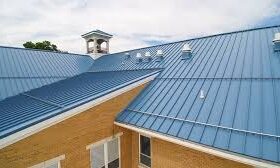Choosing a new furnace is an important and expensive decision. A furnace that is energy efficient can save you a lot of money and trouble in the long run, but it can be difficult to know which furnace is the most energy efficient with so many choices on the market today.
It will usually be a choice between a gas or electric furnace, but both types have their pros and cons, and one is not necessarily always better than the other. You can visit jakservices.com/furnace-installation/ for assistance with your decision and speak with an expert about your specific needs.
Gas or Electric?
There are advantages and disadvantages to using both gas and electric furnaces. You also need to be sure of your home’s heating requirements before making your final choice.
How They Work
Both gas and electric furnaces use a forced air heating system to heat your home. When the temperature in a room falls below the heat point set on the thermostat of the furnace, a signal is sent to the furnace unit to turn on.
The signal will cause the pilot light of the gas unit to ignite the main burner of the heat exchanger. The pilot light, a small flame, is always burning. The heat exchanger gets heat from the main burner and heats the air that will circulate in the house.
With the electric furnace, an electric ignition activates the electric heating elements inside the furnace, after receiving the signal from the thermostat.
Gas Furnace Pros
- Gas furnaces are less expensive to run, as they are run by natural gas, which is more affordable in most places. Over the long run, they usually work out to be much cheaper to use than an electric furnace.
- They’re powerful and can produce heat more quickly than electric furnaces do. They are excellent for cold climates, because they can keep the temperature of a house at comfortable levels, even in low temperatures.
Gas Furnace Cons
- It’s more expensive to buy and install gas furnaces. They’re more complicated, which can drive up the installation and maintenance costs. If your house doesn’t have a natural gas line that can be used to power a furnace, it’s expensive to equip the house with gas and is usually not worth the effort. There is also the chance that an accident could happen. If you have a gas furnace, your house needs a carbon monoxide detector.
- There is the risk that the gas furnace won’t be as energy efficient as an electric one, as gas could escape the system and not heat the house.
- Gas furnaces are louder than electric furnaces.
- Their lifespan is not as long as that of electric furnaces, and you can use them for between 10 and 20 years before you need to replace them.
Electric Furnace Pros
- Most houses already have the power to run an electric furnace. The electric furnace is also reliable, simple to use and they are better at converting energy into heat, which makes them energy efficient.
- The initial furnace cost is lower than that of a gas furnace.
- Their maintenance is also easier and this can lower the cost of upkeep. It’s possible to troubleshoot simple problems on your own, which can’t be done with gas furnaces.
- Electric furnaces have a longer lifespan and could last up to 30 years.
- They are quieter to use than gas furnaces.
- The electrical furnace doesn’t use combustible gas, so there is no chance that accidents can happen.
Electric Furnace Cons
- They usually have higher utility fees than a gas furnace.
- The increased energy cost could mean the electric furnace will cost you more over time.
- The electric furnace creates original heat, which means they have to work harder and the temperatures they reach may not be as high. They are usually recommended for the warmer climates.
Final Thoughts
When you are doing research about the perfect furnace for your household, consider your house’s access to natural gas, as well as the cost of electricity and natural gas in your area. Finally, either furnace will work well to keep your home warm, if they meet your specific heating requirements.













